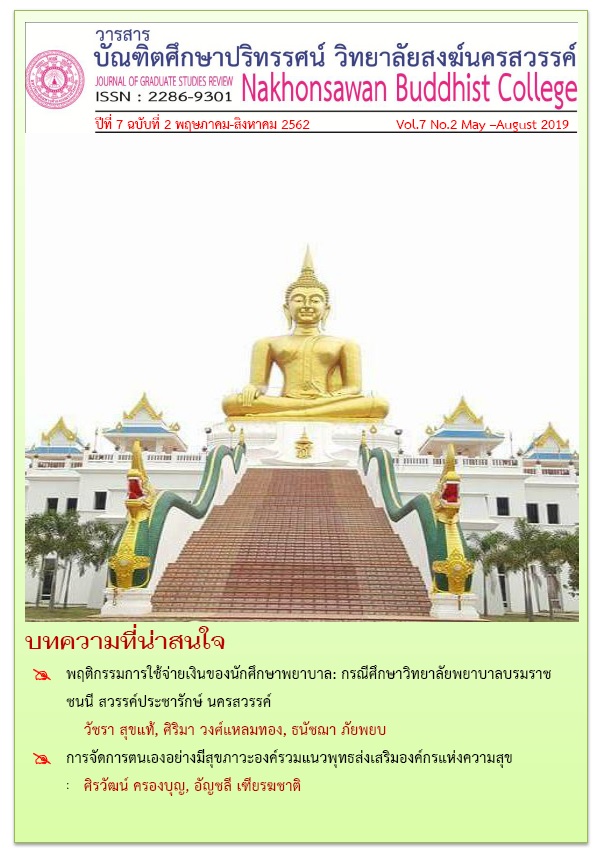TEACHERS’ CORE COMPETENCIES ON THE INDICATORS UNDER THE SUPHAN BURI PRIMARY EDUCATIONAL SERVICE AREA OFFICE 3
Main Article Content
Abstract
This research aimed to: 1) investigate the level of core competency performance according to competency indicators of teachers under SuphanBuri Primary Educational Area Officer 3; 2) compare the core competency according to competency indicators of teachers under SuphanBuri Primary Educational Area Officer 3; and 3) study the guidelines to develop core competency of teachers under the SuphanBuri Primary Educational Area Officer 3. The research sample was divided into 2 groups. The first group was questionnaire respondents consisted of 302 teachers and school administrators under the SuphanBuri Primary Educational Area Officer 3, derived by multi-stage sampling as distributed by district. The second group was interview respondents consisted of 8 school administrators, derived by purposive sampling. The research instruments were a questionnaire and an interview form constructed by the researchers. Data were analyzed with percentage, mean, standard deviation, t-test, one-way analysis of variance, and content analysis.
The findings of this research were as follows:
- Overall the core competency according to teachers’ competency indicators was at the highest level. When considering each aspect, all aspects were at the highest level. The top three aspects were ethnics and professional code of conduct for teachers, teamwork, and self-development. The aspect with the lowest average was achievement motivation.
- The teachers and school administrators with differences in sex and positions had no different level of core competency according to competency indicators. However, those with differences in age, education level, work experience, academic position, and district had different level of core competency with statistical significance at 05.
- The guidelines to develop teachers’ core competency were school administrators and teachers should participate in policy setting to promote and support teachers’ self-development; exchange knowledge with others; help other people, colleagues, and community; honor and give support to colleagues; and have faith in goodness and creativity of profession.


